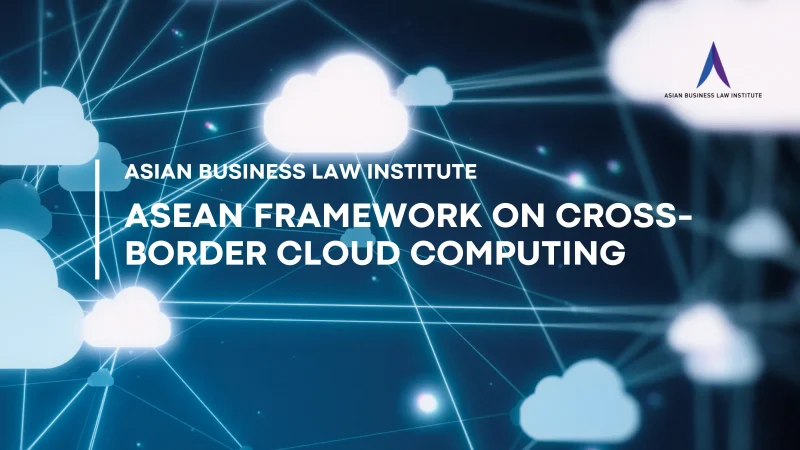Insights on the Work Injury Compensation Act (WICA)
MTM Ship Management Pte Ltd v Devaswarupa [2022] SGHC 178 (“MTM Ship Management”) and the Workplace Injury Compensation Act (“WICA”)
What You Need to Know
- While the WICA concerns all employers in Singapore generally, this legal update is particularly relevant to marine and non-marine insurers, ship managers, crewing agents, and employers of manual workers.
- The WICA statutory regime allows employees to make claims for work-related injuries or diseases without having to commence a civil suit.
- The objective of the WICA regime is to provide a low-cost and quicker alternative to the common law for settling compensation claims.
- How does a private settlement entered into between employer and employee affect a subsequent WICA claim? This issue was recently discussed by the General Division of the Singapore High Court in MTM Ship Management Pte Ltd.
The Decision
- In MTM Ship Management, an employee succumbed to injuries suffered in the course of unloading cargo aboard a vessel. Pursuant to the employee’s employment contract, the employer entered into a private settlement with the employee’s next-of-kin and paid monetary compensation for the employee’s death.
- The employee’s next-of-kin subsequently commenced a claim under WICA 2009.
- A novel question arose: whether the Commissioner for Labour (the “Commissioner”) has the discretion to take into account the private settlement when deciding whether the subsequent WICA 2009 claim should be allowed, and the quantum thereof if so.
- The Court concluded that the purpose of the WICA 2009 is to provide an alternate, quick and cheap means for employees to receive compensation. As such, the Commissioner in adjudicating WICA claims has the discretion to take into account settlements made to the employee prior to the commencement of a WICA claim. The Commissioner should thereafter set off the private settlement sum paid to the employee against any sums payable to the employee as assessed under the WICA regime.
- Accordingly, the Court reversed and set aside the decision of the Commissioner. The court took into account the private settlement paid by the employer which was of a higher value than the WICA-adjudicated compensation amount, effectively extinguishing the employee’s WICA claim. A fuller discussion of the judgment is set out below.
Significance of the Decision
- The objective and purpose of the WICA regime was clearly stated by the Court in this decision: it is an alternative process for employees to receive compensation for workplace accidents, and is not meant to supplement any common law claims. The WICA regime does not allow double recovery.
- Employees who are entitled under their employment contracts to some form of compensatory payment in the case of injury or death can expect to have any WICA claim reduced by that amount if they had already been compensated for that injury.
- Employers are now assured that any private settlement sums paid to injured employees will go towards reducing compensation sums assessed to be payable to the employee under the WICA regime.
- It remains open as to whether the WICA 2019 regime will mirror the WICA 2009 regime in this regard. Our view is that, based on the similar legislative intent and purpose of the WICA 2009 and 2019 regimes, it will.
Case Summary
The facts
- In MTM Ship Management, the Singapore High Court tackled the issue of whether within the WICA framework discretion is afforded to the Commissioner in making his determination, how and when should that discretion be exercised.
- In a decision that will be welcomed by employers, the case provides a degree of certainty that any compensation paid outside of a WICA 2009 claim should, in most circumstances, offset any award that is eventually made.
- The case involved a seaman who had perished on a vessel following an unfortunate accident while the vessel was mooring at port. Pursuant to a Collective Bargaining Agreement that was incorporated into the seaman’s employment contract (the “CBA”), the seaman’s employer, MTM Ship Management Pte Ltd (the “Applicant”) paid the sum of US$ 144,000.00 (the “Settlement Sum”) to the seaman’s beneficiaries (the “Respondents”).
- The Respondents subsequently lodged a claim under WICA 2009 for compensation for the seaman’s death. The Applicant raised no objections during the relevant period and a Certificate of Order (the “COE”) made in favour of the Respondents for a sum that was less than the Settlement Sum. The COE was notably labelled as being under WICA 2019.
- The Applicant then pointed out that the CBA contained a clause stating that a seaman who receives compensation under the WICA would only receive the difference between the amount ordered under the WICA and the Settlement Sum, if the former was larger than the latter. The Applicant subsequently appealed.
The decision
- The Court determined that there were three pertinent issues to be determined:[1]
- Does the applicant have a right of appeal against the Commissioner’s decision (“Issue 1”);
- Is the applicable legislation the WICA 2009 or the WICA 2019 (“Issue 2”); and
- Should the COE be set aside (“Issue 3”).
- Issues 1 and 2 were quickly resolved. Regarding Issue 1, under both s 29(2A) of the WICA 2009 and s 58(1) of the WICA 2019, an appeal could only be made if it involved both a substantial question of law, and if the amount involved was greater than SGD 1,000.00. The Court found that as the present case involved a novel question of statutory interpretation as to whether the Commissioner has the power under WICA 2009 or WICA 2019 to take into account settlement payments when assessing the amount of compensation payable, and that COE was for a greater sum than SGD 1,000.00, the Applicant did have a right of appeal.
- Regarding Issue 2, the Court found that under s 84(2) of the WICA 2019, as the death of the seaman occurred before WICA 2019 had come into effect, WICA 2009 applied.
- On Issue 3, the Court noted that s 9(1A)(1) of the WICA 2009 provided that payment or compensation in respect of a workman whose injury resulted in death or permanent incapacity should be made by way of a deposit to the Commissioner directly, and that any payment made directly to the workman or their dependant shall be deemed not to be payment of compensation for the purposes of the WICA 2009. However, under s 9(1A)(1)(b), the Commissioner may take into account any amount paid otherwise than in accordance with s 9(1A)(1) if they consider it fair and reasonable to do so.
- The question was then whether this provision should be interpreted as conferring the discretion to take into account previous settlement payments. To answer this question, the Court undertook an exploration into the legislative history of the WICA regime and the parliamentary debates at the reading of the various bills in order to determine firstly, whether the Commissioner had the discretion to take into account previous settlement payments and secondly, when and how that discretion was to be exercised.
- The Court found that the WICA 2009 was drafted with the intention of providing compensation to employees in two circumstances:[2]
- First, where the employee would otherwise have been able to obtain common law damages from his employer, the WICA regime provides an alternative and simpler route to obtaining compensation; and
- Second, where the employee would not have been able to obtain common law damages from his employer (eg, because the employer was not at fault), the WICA regime nonetheless provides a measure of compensation to the employee.
- The Court further held that there was nothing to suggest that the WICA 2009 was designed to provide a more generous measure of compensation than would have been hypothetically awarded by a Court under common law had their claims succeed.[3] The principle of deductibility is still to apply, and, as the Singapore Court of Appeal had previously observed in Pang Cheng Suan[4], the object of the WICA regime “is not to give workmen the right of double recovery of compensation and damages for the same injury”.[5]
- On these grounds, the Court decided that the legislative intent of the WICA 2009 could not have been to allow employees who had already received a settlement payment from their employer to also obtain compensation for the same injury as of right and without exception.[6]
- That s 33 of the WICA 2009 also prevents compensation from being claimed by an employee who has already instituted an action for damages or recovered damages in respect of that injury in any court supports this view.[7]
- Turning to the situation at hand, the Court found that as the settlement amount was greater than the claim allowed under the WICA 2009, that the Respondents had been adequately compensated and that the Certificate of Order was accordingly reversed and set aside.
Do these findings extend to the WICA 2019?
- The Court, having found that the Commissioner does have a discretion as to whether to take prior settlement payments into account under WICA 2009, did not have to consider if the same applied under WICA 2019. Nonetheless, the Court proceeded to make some general observations.[8]
- The first is that there was no provision in pari materia with that of s 9(1A)(b) of the WICA 2009, or any provision that expressly allows the Commissioner to take into account settlement payments when determining the sum of compensation payable. However, there was also no mention in the parliamentary debates as to why s 9(1A)(b) was absent from the WICA 2019.
- The Court suggested a reason for this might be that s 51 of the WICA 2019 confers a discretion on the Commissioner whether to record the terms of a settlement under the WICA 2019, make any order to give effect to a settlement, or refuse to record the settlement. The Court also pointed out that s 54 of the WICA 2019 conferred upon the Commissioner the power to make an order for the payment of compensation or refusal compensation as they think just.[9]
- The Court ultimately concluded that the question remained open for future determination, although the Court expressed that it hoped that these provisions do continue to encompass the discretion to take into account settlements, or failing that, that Parliament would consider making appropriate legislative amendments.[10]
- The second is that it remains an open question if a settlement which acts as payment for the purposes of the Merchant Shipping (Maritime Labour Convention) Act 2014 (the “MLCA 2014”) is made, whether that payment will reduce the compensation under the WICA regime in the case of a death or permanent incapacitation. As both WICA 2009 and WICA 2019 contained provisions that state this is the case for medical expenses and/or payment for loss of earnings, the Court expressed this may be a gap in the law which requires filling, but that it was not for the Court in this case to answer those questions.[11]
[1] MTM Ship Management [33]
[2] MTM Ship Management [77]
[3] MTM Ship Management [78]
[4] [2008] 3 SLR 648
[5] MTM Ship Management [76]
[6] Ibid [79]
[7] Ibid [55]
[8] Ibid [87]
[9] Ibid [88] – [90]
[10] Ibid [91]
[11] Ibid [92]

